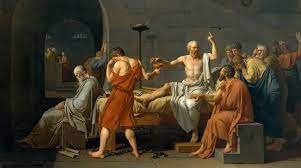New
Introduction to Philosophy (211-A)
Free

Course content
What Philosophy is?
Introduction to Philosophy
Describing Philosophy
Describing Philosophy
Chronological History of Philosophy
Chronological History of Philosophy
Methods in Philosophy
Methods in Philosophy
Elements of Critical Thinking
Elements of Critical Thinking
The Value of Philosophy
The Value of Philosophy
Theory of Knowledge
Moral Philosophy
About Course
Course Contents
-
What is Philosophy
-
The subject matter of Philosophy
-
The divisions of Philosophy
-
Historical Periods of Philosophy
-
The methods of Philosophy
-
The elements of Critical Thinking
-
The Value of Philosophy
-
§ Theory of Knowledge
-
Rationalism
-
Empiricism
§ Moral Philosophy
-
Kantian Ethics
-
Utilitarianism
-
Relativism
§ Political Philosophy
-
Equality
-
Money
-
Employment
-
Democracy
-
Freedom
-
-
Positive
-
Negative
§ Philosophy of Art
-
Significant form Theory
-
Idealist Theory
-
Institutional Theory
Instructor
Student Ratings & Reviews

No Review Yet

